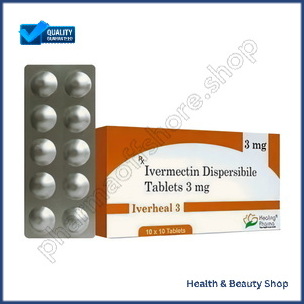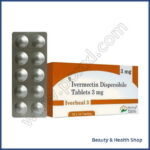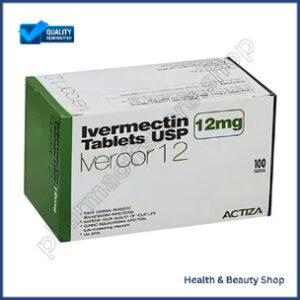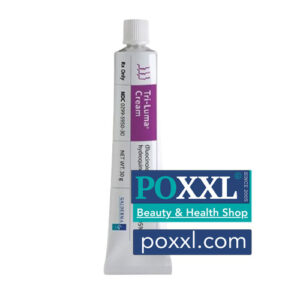ADDICTION
ALCOHOL DEPENDENCE
QUIT SMOKING
ALLERGY
ANTI FUNGAL
FUNGAL INFECTION
FUNGAL NAIL INFECTIONS
ANTI-REJECTION DRUGS
ANTI WORM
ANTIBIOTIC
BACTERIAL INFECTIONS
ARTHRITIS
GOUT
OSTEOARTHRITIS
RHEUMATOID ARTHRITIS
BLOOD
LOW PLATELET COUNT
THROMBOPHLEBITIS
VARICOSE VEINS
COLON
ANAL FISSURE
PILES
ULCERATIVE COLITIS
DIABETES CARE
DIABETES INSIPIDUS
DIABETES TYPE
DIABETIC FOOT ULCERS
GLUCOSE MONITOR
EYES/EAR CARE
DRY EYES
EYE CARE
EYE EXAMINATION
EYE INFECTION
EYE LASHES
EYE PAIN
GLAUCOMA
OCULAR HYPERTENSION
UVEITIS
FEVER CARE
MALARIA
RHEUMATIC FEVER
TYPHOID FEVER
GASTROINTESTINAL
ACIDITY
CONSTIPATION
CROHN'S DISEASE
DIARRHOEA
GALLBLADDER STONES
INTESTINAL ULCERS
IRRITABLE BOWEL SYNDROME
MOTION SICKNESS
NAUSEA
Ivermectin 3 mg
| Active Ingredient (Generic Name): | Ivermectin |
|---|---|
| Indication: | Scabies, Filariasis |
| Manufacturer: | Actiza Pharmaceutical Pvt. Ltd. |
| Packaging: | 10 tablets in one strip |
| Strength: | 3mg |
From: $38.00
When using Ivermectin 3 mg, you treat parasitic infections such as strongyloidiasis and onchocerciasis. Take one 3 mg dose on an empty stomach. Higher infection risk may require varied dosages. Follow precise instructions without skipping doses. Not for children under 15 kg. Store at room temperature. Use water to intake. Watch for side effects like nausea or diarrhea; contact healthcare for severe ones. Off-label uses include head lice and rosacea. Monitor for drug interactions. Dispose properly, and seek help for emergencies or overdoses. FDA-approved, its cost varies; insurance may cover it. Learn more for extensive guidance.
Start here by understanding the recommended dosage and administration of Ivermectin 3 mg for its intended use. Ivermectin 3 mg is commonly prescribed to treat parasitic infections, such as strongyloidiasis and onchocerciasis. The typical dosage for adults is usually a single dose of 3 mg, taken orally with water on an empty stomach. It is essential to follow the instructions provided by your healthcare provider or pharmacist carefully.
For individuals with a higher risk of infection or severe cases, the dosage might vary, and the duration of treatment could be longer. It is vital to complete the full course of treatment as prescribed, even if symptoms improve before the treatment is finished.
Remember that Ivermectin 3 mg is not recommended for children weighing less than 15 kg. If you have any questions or concerns about the dosage or administration of this medication, do not hesitate to consult your healthcare provider for guidance. Adhering to the recommended dosage and administration is key to the effective treatment of parasitic infections.
Why is this medication prescribed?
To understand why Ivermectin 3 mg is prescribed, it is important to recognize its specific medical purposes and benefits in treating certain parasitic infections. Ivermectin is commonly prescribed to combat various parasitic infestations, such as head lice, scabies, and strongyloidiasis. This medication works by paralyzing and killing the parasites that cause these infections. For instance, in the case of scabies, Ivermectin helps eliminate the mites responsible for the skin condition. Additionally, Ivermectin is utilized in treating onchocerciasis, also known as river blindness, a disease caused by a parasitic worm transmitted through the bites of black flies. By targeting and eliminating the parasites causing these infections, Ivermectin aids in alleviating symptoms, preventing further spread, and promoting recovery. It is essential to adhere to the prescribed dosage and follow medical advice when using Ivermectin to guarantee its effectiveness in treating parasitic infections.
How should this medicine be used?
When using Ivermectin 3 mg, follow the prescribed dosage and administration instructions provided by your healthcare provider. Typically, Ivermectin is taken as a single dose on an empty stomach with a full glass of water. It is important to take the medication exactly as directed. Do not skip doses or take more than the recommended amount. If you are unsure about any aspect of how to take Ivermectin, consult your healthcare provider or pharmacist for clarification.
Remember to store Ivermectin at room temperature away from moisture and heat. Keep this medication out of reach of children and pets. If you miss a dose, take it as soon as you remember, unless it is almost time for your next scheduled dose. In that case, skip the missed dose and continue with your regular dosing schedule. Do not double dose to make up for a missed one. If you experience any unusual or severe side effects while taking Ivermectin, contact your healthcare provider immediately for guidance.
Other uses for this medicine
For other uses, Ivermectin 3 mg may be prescribed off-label by healthcare providers. Although Ivermectin is widely known for its effectiveness in treating parasitic infections like river blindness and scabies, it has also shown promise in other medical conditions. Some healthcare providers may prescribe Ivermectin off-label for certain off-label uses, such as treating head lice infestations, rosacea, and even certain viral infections.
In addition to its antiparasitic properties, Ivermectin has been studied for its potential antiviral effects. Some research suggests that Ivermectin may have activity against certain viruses, including Zika and Dengue viruses. However, more studies are needed to fully understand the efficacy and safety of using Ivermectin for these purposes.
It is important to note that using Ivermectin for off-label purposes should only be done under the guidance and supervision of a qualified healthcare provider. Always follow your healthcare provider’s instructions and do not self-prescribe Ivermectin for any condition without proper medical advice.
What special precautions should I follow?
When taking Ivermectin 3 Mg, it is important to check for potential drug interactions with other medications. Be sure to inform your healthcare provider about all the medicines you are currently taking to avoid any adverse effects. Taking this precaution can help guarantee the safe and effective use of Ivermectin 3 Mg in your treatment regimen.
Check for Drug Interactions
To guarantee safe and effective use of Ivermectin 3 mg, be sure to check for any potential drug interactions. Interactions with other medications can alter the effectiveness of Ivermectin or increase the risk of side effects. Here are some important steps to take:
- Consult with your healthcare provider: Inform them about all the medications, supplements, and vitamins you are currently taking to assess potential interactions.
- Research potential interactions: Use reliable sources or consult a pharmacist to check for known interactions with Ivermectin.
- Monitor for symptoms: Be vigilant for any unusual symptoms or side effects when starting a new medication alongside Ivermectin.
What special dietary instructions should I follow?
Consider incorporating dietary fiber-rich foods like fruits, vegetables, and whole grains into your meals while taking Ivermectin 3 mg for best absorption. Fiber-rich foods can help optimize the absorption of Ivermectin in your body. It’s vital to maintain a balanced diet that includes a variety of nutrients to support your overall health during treatment. Additionally, drinking an adequate amount of water is important to guarantee proper digestion and absorption of the medication.
Avoid excessive consumption of high-fat meals or foods that are heavy in dairy products when taking Ivermectin, as these may interfere with the absorption process. It’s recommended to space out your intake of Ivermectin from high-fat meals to avoid any potential interactions that could impact its effectiveness. Be mindful of any specific dietary guidelines provided by your healthcare provider or pharmacist regarding the timing of meals in relation to your medication schedule. Following these dietary instructions can help you get the most out of your Ivermectin treatment.
What should I do if I forget a dose?
If you realize you have missed a dose of Ivermectin 3 mg, take it as soon as you remember. However, if it is almost time for your next dose, skip the missed dose and continue with your regular dosing schedule. Do not take a double dose to make up for a missed one. It is important to maintain a consistent dosing schedule to guarantee the effectiveness of the medication.
To help you remember to take your doses on time, you may find it helpful to set a daily alarm or establish a routine for taking your medication. If you have missed a dose and are unsure about what to do, it is recommended to consult your healthcare provider or pharmacist for guidance.
Consistency in taking Ivermectin 3 mg as prescribed is essential for the treatment to be effective. Missing doses can impact the medication’s ability to work properly. If you have any concerns or questions about your dosing schedule, do not hesitate to seek advice from a healthcare professional.
What side effects can this medication cause?
When taking Ivermectin 3 mg, it is important to monitor any persistent or severe symptoms that may arise. Some side effects of this medication can be serious, so if you experience any concerning symptoms, make sure to contact your doctor promptly. Being aware of potential side effects and seeking medical advice when needed is essential for your well-being when using Ivermectin 3 mg.
Monitor Persistent or Severe Symptoms
Be vigilant for any persistent or severe symptoms that may arise as potential side effects of taking Ivermectin 3 mg. If you experience any of the following symptoms, contact your healthcare provider promptly for guidance:
- Vital Nausea or Vomiting: If you continuously feel nauseous or experience frequent vomiting after taking Ivermectin, seek medical advice.
- Unexplained Rash or Itching: If you develop an unexplained rash or experience severe itching that persists, consult your doctor.
- Essential Breathing: If you have trouble breathing, shortness of breath, or chest tightness after using Ivermectin, seek immediate medical attention.
Monitoring these symptoms is essential for early detection and management of any potential adverse reactions to the medication.
Some side effects can be serious. If you experience any of the following symptoms, call your doctor immediately:
To understand the potential side effects of Ivermectin 3 mg, consider the following symptoms that may necessitate immediate medical attention:
- Severe skin rash or itching
- Swelling of the face, lips, or tongue
- Difficulty breathing or chest tightness
If you experience any of these symptoms after taking Ivermectin 3 mg, it is vital to contact your doctor promptly. These side effects can be serious and may indicate an allergic reaction or other severe complications that require medical intervention. Your health provider will be able to assess your symptoms and provide appropriate guidance or treatment. It is essential not to disregard these signs and seek medical help promptly to safeguard your well-being.
What should I know about the storage and disposal of this medication?
Properly store and dispose of Ivermectin 3 mg to guarantee its effectiveness and prevent harm to others. Store the medication at room temperature away from moisture and heat. Keep it out of reach of children and pets to avoid accidental ingestion. Do not freeze Ivermectin 3 mg.
When it comes to disposing of Ivermectin 3 mg, do not flush it down the toilet or pour it into a drain unless instructed to do so. Check with your pharmacist on how to properly dispose of unused medication. Follow any specific disposal instructions carefully to protect the environment and prevent misuse.
If the medication has expired or you no longer need it, dispose of it promptly and correctly. Do not keep expired or unused medication as it may not be as effective and could be harmful if taken accidentally. By storing and disposing of Ivermectin 3 mg responsibly, you contribute to medication safety and environmental protection.
In case of an emergency/overdose
In case of an emergency or overdose with Ivermectin 3 mg, immediately seek medical assistance. If you suspect an overdose, experience severe side effects, or have accidentally ingested too much of the medication, do not hesitate to contact your local poison control center or go to the nearest emergency room. Provide healthcare professionals with information about the amount of Ivermectin 3 mg taken, when it was ingested, and any symptoms you may be experiencing. It is vital to act promptly in such situations to prevent any potential complications that may arise from an overdose. Do not attempt to treat the overdose on your own or induce vomiting unless instructed by medical professionals. Remember that seeking immediate medical attention is the best course of action when faced with an emergency or overdose involving Ivermectin 3 mg. Your health and safety are of utmost importance, so do not delay in seeking help.
What other information should I know?
When learning about Ivermectin 3 mg, it is important to understand potential drug interactions and precautions. It is vital to inform your healthcare provider about all the medications, supplements, and vitamins you are currently taking, as certain drugs may interact with Ivermectin, leading to adverse effects or reducing its effectiveness. Some medications that may interact with Ivermectin include blood thinners, seizure medications, and certain antibiotics. Additionally, it is essential to follow the prescribed dosage and schedule strictly to guarantee the medication’s best efficacy.
Furthermore, before taking Ivermectin 3 mg, inform your doctor about any medical conditions you have, especially liver problems, as this may affect how your body processes the medication. Pregnant or breastfeeding individuals should also consult their healthcare provider before using Ivermectin, as its safety during pregnancy or breastfeeding has not been conclusively established. Finally, store Ivermectin tablets at room temperature away from moisture and heat, and keep them out of reach of children to prevent accidental ingestion.
Brand names
For a range of choices, different pharmaceutical companies market Ivermectin 3 mg under various brand names. Here are some of the common brand names under which you can find Ivermectin 3 mg:
| Brand Name | Manufacturer |
|---|---|
| Stromectol | Merck Sharp & Dohme |
| Ivexterm | Valeant Pharmaceuticals |
| Ivera | Abbott Laboratories |
| Mectizan | Merck & Co. |
| Soolantra | Galderma Laboratories |
These brand names may vary depending on your location and the pharmaceutical company producing the medication. It’s crucial to make sure you are purchasing from a reputable source and consult with a healthcare professional before starting any medication regimen. Be sure to check the packaging and labels to confirm you are receiving the correct dosage and brand of Ivermectin 3 mg for your specific needs.
Purchase Ivermectin 3 Mg
To acquire Ivermectin 3 mg, consider sourcing it from licensed pharmacies or reputable online retailers. When purchasing Ivermectin 3 mg, it is important to confirm that the product is obtained from a legitimate source to guarantee its quality and safety. Licensed pharmacies offer a reliable option for acquiring Ivermectin 3 mg, as they adhere to strict regulations and quality standards. Reputable online retailers that specialize in pharmaceutical products can also be a convenient source, but it is essential to verify their credibility and authenticity before making a purchase.
Before buying Ivermectin 3 mg, it is advisable to consult with a healthcare professional to determine the appropriate dosage and usage instructions based on your specific needs. Additionally, be cautious of counterfeit or substandard products that may be circulating in the market, as they can pose serious health risks. By obtaining Ivermectin 3 mg from trusted sources and following professional guidance, you can ensure the effectiveness and safety of the medication for its intended purpose.
To summarise
Consider summarizing the key points discussed regarding Ivermectin 3 mg. Ivermectin 3 mg is a medication commonly used to treat parasitic infections in humans and animals. It works by paralyzing and killing parasites, effectively clearing the infection. When taking Ivermectin 3 mg, it is important to follow the prescribed dosage and duration to guarantee its effectiveness and reduce the risk of potential side effects. Common side effects may include dizziness, nausea, and diarrhea, but severe reactions are rare when taken as directed. It is essential to consult a healthcare professional before starting Ivermectin 3 mg, especially if you have underlying health conditions or are taking other medications. Additionally, purchasing Ivermectin 3 mg should only be done through reputable sources to ensure the medication’s quality and safety. By summarizing these key points, you can make informed decisions about using Ivermectin 3 mg for your health needs.







